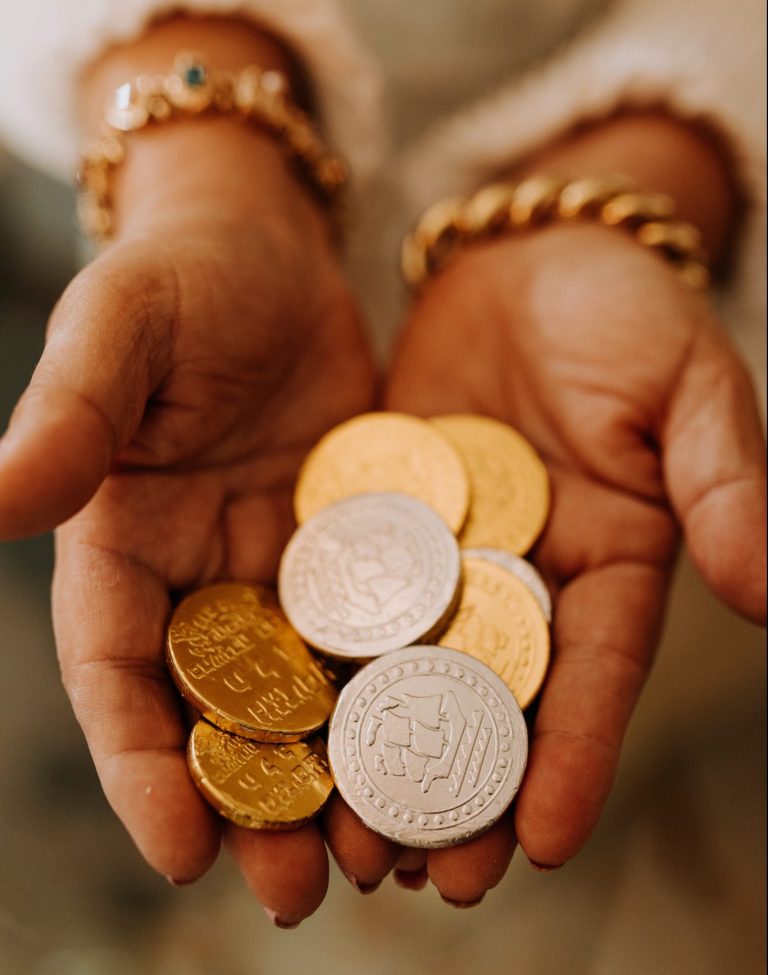As my family transitioned from living in India to living in America, the culture was throbbingly different and for my sister and I, an emphasis on ‘who am I in all of this?’ was ever present. My parents wanted us, as a family, to keep ourselves grounded in not only thinking of others, but taking action, quietly, personally, in acknowledging those in need.
We each received thirty five cents a week in allowance, and we were given the option of raising additional money for ourselves if we ironed, dug dandelions, or babysat for neighbors. In ironing, ten cents per sheet and ten cents per Dad’s shirt; for dandelions, one dollar an hour; and babysitting? Gold! As this came from someone’s else’s pocket and felt quite abundant. What we chose to do with this money was private.
In the upstairs hallway, perched on a bookcase, sat a small, elegantly inlaid wooden box from India. The inlay was of two men sitting and exchanging gifts with one another. This was the tithe box. My parents believed that no matter what funds one earned, being connected to a greater awareness of others was a human necessity. Ten percent of what one brought into the house was mentioned, but even the gesture of pennies in the box, kept the energy flowing. It became a habit for each of us, at first hesitantly, because buying an eyeliner or saving up for a sweater was arduous with the meager sums that slid in, but this morphed into deliberate satisfaction when contributing pennies, nickels and dimes to the box, and pure delight when it filled.
To this day, when I see a wooden inlaid Indian box, my innate instinct is to drop coins into it, and whether this is appropriate at the moment or not, the inspiration is continually ignited and carried forth.
Thank you, Mom and Dad, for this.
